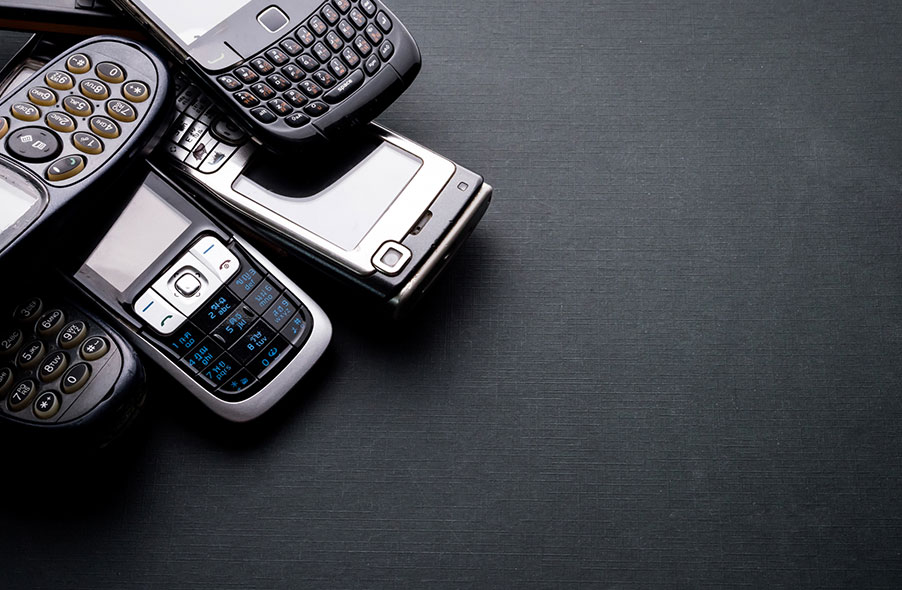It is nearly impossible to tell the story of human civilization without mentioning gold. The bright, shiny, yellow metal tells quite a story, from being used as a currency in early times to becoming a status symbol in jewelry and decorations in more modern times. It is the metal that sparked massive migrations across continents and brought colonization and the enslavement of millions of people.
Nowadays, gold does not create such behavior, but it still drives humans to extremes to acquire it. With the price of gold reaching nearly $1,700 an ounce, there is still a significant economic incentive to acquire precious metal. Traditionally, humans mined metal ore and refined it to extract metals. Famous gold rushes across the world sparked thousands of prospectors to seek their fortunes in the mines.
Over more recent decades, gold found its way into industrial applications and electronic devices. Its superior electric conductivity characteristics made it a metal of choice for plating connectors on electronic boards found in the appliances and electronic devices we use. With billions of electronic boards and other e-waste discarded yearly, a business opportunity exists for recyclers to extract gold, refine it, and sell it for profit.
The central question of this business model is this: “Is Recovering Gold from Electronics Worth It?” While the short answer to this question is yes, the full answer is extremely complicated. To have a profitable venture of extracting gold from electronics, an entrepreneur must meet quite a few criteria, including but not exclusive to:
- Method of extraction
- The high cost of entry
- The scale of the operation
- Environmental and safety concerns
- Availability of scrap metal as raw material
- Logistics behind the whole process
- Integrated recycling approach
- Availability of trained workforce
- Legal concerns
In this blog, we will cover all of these factors and how they affect gold extraction profitability.
Method of Extraction
The extraction of gold from old electronic components and electronic boards is not a new process. To be precise, two distinct chemical methods are used for extracting gold from old electronics.
The first method uses one of the most powerful acids in the world, aqua regia. Aqua regia is a mixture of two potent acids: hydrochloric acid and nitric acid. Precious metals like gold are inert and do not react to a single acid solution. A combination of hydrochloric and nitric acid will dissolve the gold for recovery; however, the process releases toxic fumes dangerous to humans. The mixture of acid and electronic components needs further refinement, involving more hazardous chemicals until pure gold is extracted.
The second method involves the use of electrolysis to extract the gold from electronic components. The crushed components are placed into larger containers for burning. For the successful extraction of gold from that mixture, sodium cyanide is a crucial chemical. Using an electricity source, electrolysis separates gold particles and binds them to a metal rod. This method’s main downside is the ultra dangerous sodium cyanide and the damage it causes to humans.
Both methods have serious safety and environmental concerns but are undoubtedly efficient.
High Cost of Entry

The machines, lab equipment, protective gear, and chemicals needed for gold recovery from electronics are expensive, making it nearly impossible for an amateur to start a small-scale refinement business. A sizeable investment must be made to ensure the operation is 100% compliant with all the rules and regulations, and much of that investment is the cost of hiring professional chemists and personal to handle the refining process and disposable waste.
The location where the refining process takes place needs special outfitting as well. This adds cost to an already expensive project. Most hobbyists simply cannot afford an industrial-scale operation.
The scale of the Operation
Another concern is creating economies of scale to pay back the investment and run a profitable refining business. The amount of gold to be recovered is tiny compared to the size of the electronic boards being recycled. This means that the extraction plant will need plenty of room for storing scrap boards.
Simultaneously, such an operation would require plenty of worker hours, and it would be necessary to hire multiple people to handle a variety of tasks. All this points toward a large-scale industrial operation with logistics and support.
Environmental and Safety Concerns
We already mentioned the dangerous extraction methods that release toxic chemicals. An even more significant challenge is the need to have a reliable system for disposing of the toxic waste created during the extraction process. This system will need to follow strict guidelines for hazardous waste disposal, including reducing personnel safety hazards.
On a side note, environmental concerns do not end there. A large-scale recycling and extraction operation requires a constant supply of raw material for extraction, in this case, electronic boards. The material often comes from other regions or even countries, which drastically increases the operation’s carbon footprint.
Availability of Scrap Metal and Electronic Boards
Perhaps the biggest challenge that an extraction operation can face is securing a constant supply of materials. This can be extremely challenging unless the recycling operation has contracts with factories producing electronic components. Additionally, shipping in electronic boards from electronic waste facilities in the region requires logistics and storage space.
The expensive machinery and equipment needed for the extraction process cost the operation a lot of money when sitting around and doing nothing. Ensuring that the operation runs optimally without breaks is the only way to run a profitable business in gold extraction.
Logistic

As the operation grows, logistics will become more and more critical. The number of electronic boards and components needed to keep the industrial process going is huge, often requiring owners to seek raw materials from outside of their region. This, in turn, increases shipping costs and creates a new problem: the need for storage of raw materials.
A quality logistics system would include a regular collection of e-waste from landfills, recycling centers, and collection centers to meet the demand for electronic boards. The extraction plant site needs to have access to major traffic infrastructure to ensure the delivery of materials.
Integrated Recycling Approach
While we are focusing on gold in this blog, it is crucial to mention that the amount of gold in electronic boards and components is minuscule and absolutely dwarfed by other metals. Creating an extraction operation that can separate other metals – such as silver, platinum, copper, or palladium – is a great way to increase the organization’s profitability.
By recycling various metals, you’ll always have a way to offer something on the market that is not necessarily gold. This improves the flexibility of the operation and provides a different path for future development.
Availability of Trained Workforce
Getting qualified people to join your operation is always a challenge. Recycling and extraction operations are often located in rural areas or areas where such operations can cause the least damage to the local environment. The staffing needed for the extraction process requires qualified labor, including workers with college degrees in chemistry or similar.
Persuading college-educated people to join your operation in the middle of nowhere is a difficult task. Offering higher salaries and bonuses might seriously affect the bottom line of your business. As the operation grows, it might be impossible to scale it in some areas due to the lack of a qualified workforce.
Legal Concerns

Protecting the environment and creating sustainable businesses are topics on all major governments’ agendas worldwide. To enforce laws and regulations, government inspectors and auditors will frequently visit the facility, take samples, look at machinery, and examine everything in and around the facility. The penalties for violating the rules and regulations can be steep.
Staying compliant with the latest rules and regulations while running a demanding business at a profit is extremely challenging. The regulations and laws regarding environmental protection and sustainability are expected to become even more strict in the future, further increasing the difficulty of running an extraction operation.
Taking all the mentioned factors into account, it is evident that creating a business out of gold recovery from electronics is not easy. The scale of operation needed to justify the costs and to return the initial investment is such that only larger, industrial gold extraction operations have a chance of turning a profit.
Even if you manage to put together the money needed to start the business, the day-to-day operations will not be easy to run. Juggling increasingly unfavorable legislation while keeping an eye on the safety and health of the staff is enough to overwhelm even the most experienced managers.
Learn About Gold is your one-stop-shop for everything related to gold. From articles and blog posts about the latest gold investment trends to more general facts about gold, we provide the necessary context and information people need to decide whether they want to invest in gold.
What we excel at is matching people with the absolute best gold IRA providers. If you are thinking of investing in gold, check out our website and see how our gold IRA partners can provide additional value to your investments.





